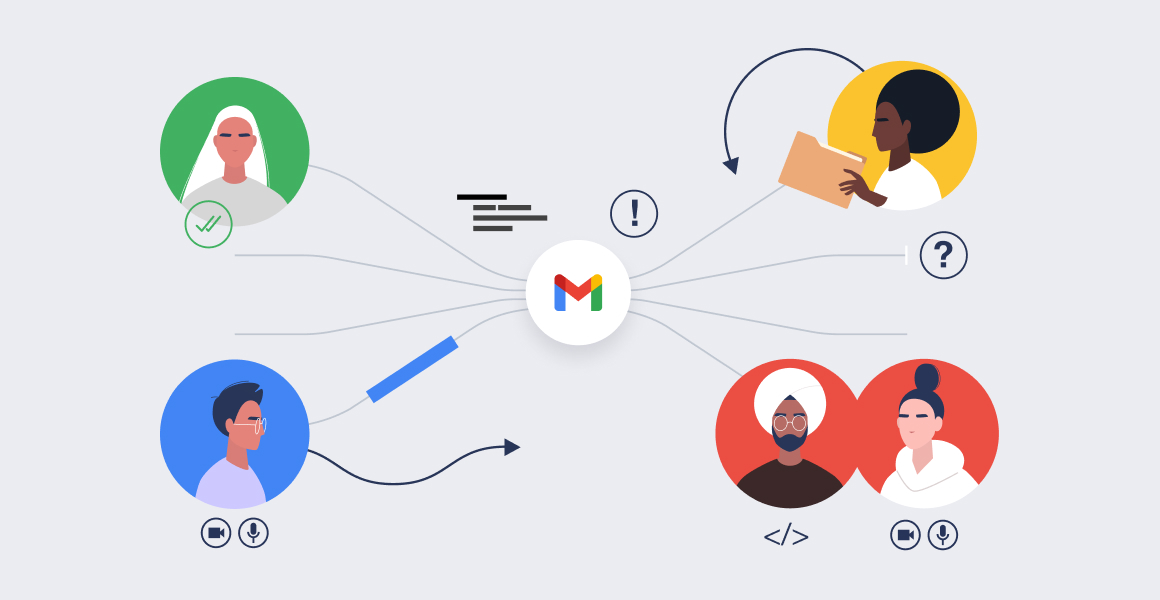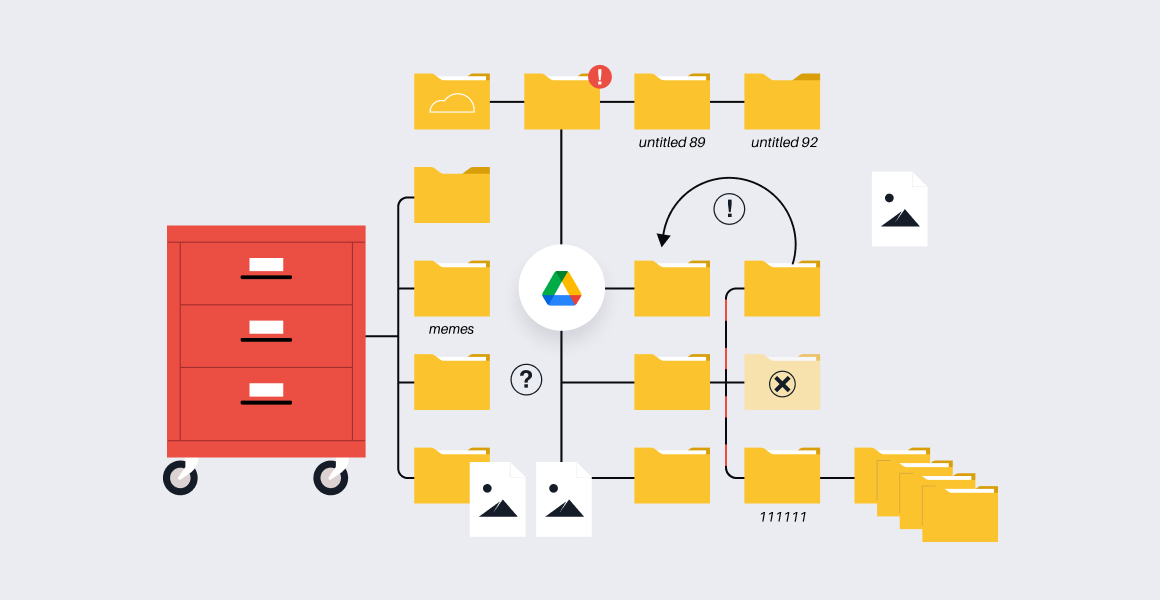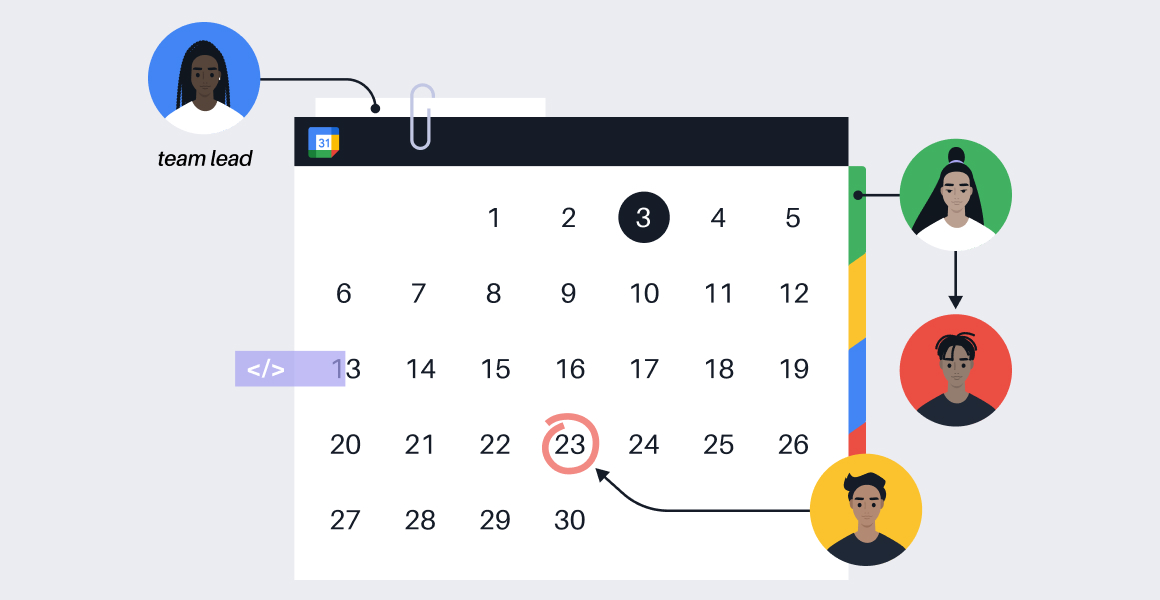Life without Google would be pretty difficult. No matter how self-sufficient you might be, chances are you rely on Google for getting information - maybe every day. That’s because Google is the most used search engine online - by far. Google is the most visited website in the world and processes a staggering 99,000 searches every single second (equating to more than 8.5 billion searches each day). It can be hard to comprehend just how much activity is happening on Google at any given moment. It makes sense that with that much searching (and retrieving) going on, narrowing down a particular search might be helpful. Wouldn’t it be great to search more efficiently and get the results you’re looking for more quickly? We’ve scoured the internet for 18 of the best Google search hacks that you need to try out on your next search.
Related Article: Gmail Hacks Guaranteed to Make Email Management Easier
1. Try the tabs
One of the first things you can do when completing a search is click a tab at the top. On the screen of every initial search, you will see categories of “web”, “Images”, “news” and more. These can help you define what kind of search you want to do (and what the results should return). For example, if you know you want a graphic, then click the images tab at the very beginning of your search. This will limit your search to only visual elements and not return a bunch of irrelevant web results or videos. If you’re trying to keep up with the latest updates on a newsworthy topic, then click “news” for the latest articles. This isn’t a mind-blowing hack, since most people use this tactic already, but it’s worth a reminder. If you’re not already familiar with these tabs, make sure you get acquainted in order to dramatically cut your search time.
2. Use quotes for a specific search
You might be surprised how many times people look for something in particular without using quotes. You can really narrow down your results by putting quotation marks around a term. Doing so minimizes the guesswork for Google. When you use quotes around your search parameters, you’re essentially telling Google to search for the whole phrase. For example, if you search for Cute Dog Houses, the engine is going to search for those three words in any particular order. On the other hand, if you search “Cute dog houses”, then the engine knows to look for that phrase just as you typed it. This is really helpful for finding targeted information that could be categorized or sorted incorrectly, or just buried under other content with better rankings. Give this a try the next time you’re performing a search - you might be surprised at the before and after results when including quotes.
3. Exclude words with a hyphen
Language is an incredibly complicated thing, especially English. In the English language, there are a lot of words that have more than one meaning. Some examples: bank, Mustang, interest, date, engage, park, play - and the list goes on. This can make searching for certain things more complex than it needs to be. Luckily, there is a workaround. If you include a hyphen in your search, you’re telling Google to avoid the particular word that follows. For instance, if you search for Nail Designs, you may get some results that include actual nails that are used for building. If you perform a search for Nail Designs - Hardware, that will eliminate any listings that include the word hardware. Another example we saw is the term Mustang. If you complete a search for the term Mustang, you could get lots of results including both the car and the horse. If you only want the horse information, then you would exclude cars by typing in Mustang horse - cars. This can be a really powerful feature depending on what you’re searching for.
4. Use a colon when looking for particular sites
What if you kind of know what you’re looking for? As in, you remember the particular website you read something in, or maybe you only trust a certain site to provide credible information. In these cases, you can target your search by using a colon. Here’s an example: say you want to see a movie review for Legends of the Fall, and you trust the reviews posted on IMDB most of all. You could enter Legends of the Fall : imdb.com. This is a great way to find specific information on a particular site, and it’s a big time-saver. It’s especially helpful if you know the site you’re looking for isn’t the most popular, and less likely to appear in the top of rankings.
5. Find all the links to a certain website
This isn’t the most-used trick, but it can be really helpful in certain scenarios. If you want to find all of the websites that are linked to another website, you can get the list by typing in link:website.com. For example, if you want to see all the places that cite the Wall Street Journal, you could type in the link:wsj.com. This tactic is helpful for various forms of academic research, and can be a good starting point when investigating links for search engine optimization. Remember that a link strategy is key to building authority and credibility for your website. To get a feel for who might be willing to link to your content, you can do a search for your competitors and see who is linking to their sites. Or, if there is a site that you’d like to collaborate with, you can do a search for that site and see who else has linked to them. Journalists can use this feature to see how credible certain articles or reports are. What other publications have linked to them? Again, it’s not likely that you’ll use this hack all the time, but in certain instances it can work well.
6. Try the asterisk wildcard
Many people find this trick one of the more helpful hacks. When you use an asterisk in a search entry on Google, it leaves a placeholder that can be automatically filled by the search engine later. This is an easy way to find information when you know part of the term, but not the full context. It’s often used to place song lyrics or to find books, movies, or other media when the title is on the tip of your tongue (or you’re trying to find the title). For example, if you are trying to find the old-school country song “Achy Breaky Heart”, but can’t quite recall the words, you could type in “Don’t * my heart, my * * heart”. Google knows how to fill in the rest of the words, and the first result will be Achy Breaky Heart by Billy Ray Cyrus. Make sure to use quotes around the verbiage you’re typing in, otherwise results can be kind of all over the place.
7. Explore websites that are similar to ones you love
This hack is helpful for people who love going down rabbit-holes online, enjoy online shopping, or like getting a lot of news online. In other words, pretty much everyone for some reason or another. Who doesn’t like getting more of what they love? Essentially, this tip will help you to find websites that are similar to the one you enter. For example, say you always use Epicurious to search for new recipes. Imagine that lately, you feel like you haven’t been as impressed and want to try some new sites that are similar. You could type in related:epicurious.com. Doing so returns sites like Cooks Illustrated and The Splendid Table. You would see dozens of search results that work similarly to Epicurious, allowing you to explore recipes, menu ideas, and more - everything you liked about the first site. Just be careful, though: playing with this feature can quickly lead to a time-sink as you find lots of new sites to investigate. Another note: make sure there are no spaces or quotes included in the search term, or it can radically change the results you get.
8. Do your math homework
Ok, we don’t actually think you should use this hack for completing homework, but it is helpful for getting some quick math answers. That’s because Google search can actually do math for you. Ask basic questions or even more difficult ones, though it won’t solve all problems. You can try inputting a simple problem like 6 * 2 + 4 (you’ll get 16), or you can enter a mathematical term such as Planck's Constant (which displays 6.62607015 × 10-34 m2 kg / s). In many cases you’ll get access to a calculator which can help you do more math. In general, this process is similar to using Excel for math. While it can’t do complicated equations, it’s perfect for doing some quick calculations without whipping out your calculator.
9. Search for more than one thing at a time
By using the term OR, you can search for two things simultaneously. If you want to make a cake, and you’re open to either chocolate or white chocolate recipes, then you could enter into the search box: chocolate OR white chocolate cakes. In this way, Google will search both phrases. You can also use the quotes tip mentioned above and search for two different phrases. If you’re preparing for a job interview, you could search “How to prepare for a job interview” OR “common interview questions” and you will get results for both. This can be really impactful for doing all kinds of general research, and save time since you’re not having to do two different searches to find information.
Related Article: Google Drive Hacks to Organize Your Digital Life
10. Search with specific numbers
This hack isn’t commonly used, but if you do need it you’ll be glad you know it! If you want to search for something pertaining to a certain number, you can do so by using two dots and the number. For example searching Which team won the Stanley Cup... 2001. You’ll receive a specific answer (that being who won the Stanley Cup that year - the Colorado Avalanche). Or maybe you want to understand what the value of one dollar was back in 1950. You would enter Value of one dollar... 1950. Essentially, this is worth trying if there is information you want to obtain around a certain number. Both of our examples used dates, but you can try this with any number and see what you come up with.
11. Be obvious
Google knows how to search for so many things - a lot more than you need, most likely. That’s why you can be more specific in order to get the best results. For example, if you are hungry for pizza, but enter only the term pizza restaurant, you might get results about how to open a pizza restaurant or a recent pizza place in the news. If you simply want to find pizza places near you, then say so. Pizza places nearby will be most effective. You do need to ensure that Google has access to your location in order to use this function (you can change it in settings if need be).
12. Get more complicated as needed
You can see the value in being obvious, but there are times you are going to need to give Google a bit more guidance. Google experts suggest starting with the basics and going from there, adding in more terms as necessary. Using our job interview example from above, you might start with job interviews. If those results are too broad, then try preparing for a job interview. Getting even more precise: preparing for an accounting job interview. In this way you can gradually refine the results to get to the information that’s most valuable to you. You might be wondering why you wouldn’t just jump to that third, very specific search. According to Google, you don’t want to miss what you may find in the second step. Even if it’s not as targeted as what you find later on, there’s probably still valuable information to be found. Websites use all kinds of copy and phrase things in many different ways; using this technique gives you access to more sites than otherwise. You never know what might pop up that can help you. That’s why it’s a good idea to increase search terms as needed, and not jump to a super-specific phrase right away.
13. Speak like a website
Google search is getting better about discovering “search intent” - meaning, what you are really trying to uncover when you perform a search. Plus, voice search (like when you talk to Alexa) is on the rise. All of these things help Google to pull results based on what you say in common language. We expect more progress to be made in this area as artificial intelligence grows and voice search becomes more popular. That being said, for now, we are stuck with the verbiage that websites actually use - and that doesn’t always mirror how people really speak. In general, websites try to sound more professional than typical speech. Consider a typical search around a workplace accident. While you might want to say something like “How do I sue for an accident at work?” a website is more likely to have relevant information with a heading like “Workplace injury attorney”. Or, “my wrist hurts” might be better found under “sore wrist relief”. You can see where we are going with this. When you go to search for something, take a moment or two and think about how you would position that phrase if you were trying to sound polished and professional - and then type those words in.
14. Use Google search shortcuts
Google has shortcuts? Well, actually, yes. A number of commands can give you immediate results. Making use of these saves time and effort so you don’t have to click around. Normally you’d have to use at least a couple clicks to find this information. Try the following:
- Weather *Zip Code* - Typing in weather plus a zip code is a quick way to discover weather conditions for a given location. Rather than tracking down a weather website and searching for the location, simply type in weather along with the zip code.
- What is *celebrity name* Bacon Number - This is just a silly one, but makes a fun party trick. Recall the popular joke that no one is more than 6 connections away from Kevin Bacon? Typing this in will tell you how many connections any given celebrity has to famed actor Kevin Bacon.
- Simple math problems like we posted above - Just type in the equation and Google will sort the problem in the proper way to solve it. For instance, if you type in 15 * 2 + 11, Google knows to multiply 15 and 2 before adding 11.
- Define: word - Pretty straightforward, this simply gives the definition of a word. An easy way to sound smarter when a word has you stumped.
- Time *Place* - Typing in time and then a location will provide the current time in whatever geography you enter.
- Stock ticker names - You can check the stock price on any entity by typing their ticker name into the search box. For example, doing a search for GOOG will pull up Google’s current stock information.
15. Track packages
This one was especially exciting to learn about! You can use Google to find packages and get updates. Enter any UPS, USPS, or Fedex tracking number directly into the Google search bar to get tracking information displayed. This is so much easier than going to the carrier site, entering the number, and waiting for your details to load. The next time you’re waiting on a package from one of the major couriers, give this a try and see how much time it saves.
16. Search social media
Social media is a huge part of today’s brand experience. Companies leverage social media for all types of things, and researching a certain organization or a certain issue isn’t complete without understanding what’s happening on social media (in fact, this has a name, called “social listening”). Social listening is crucial for companies to do as part of their own marketing and PR efforts, and is also helpful for market or competitor research. Plus, being able to search social media is great for anyone trying to follow a particular subject. Google can help by searching for you. Use the “@” or “#” symbols to look up terms. Here’s an example:
- Bananas@Twitter = Twitter profiles, tweets, etc. that include the term “bananas”
- #Bananas - Anything with the hashtag “bananas”
17. Company c-suite and other information
Are you looking for a particular hiring manager, or just doing research for a project? It’s not always easy to know who is who, but Google can offer some guidance. Try searching something like founder Google to get an actual name returned. Google will show a rich card result for a number of people searches, including a photo when available. You just type in the position (like CEO, CFO, HR Manager, etc.) and then the company. Keep in mind, this probably won’t work for smaller companies. In those cases, you’re likely to be pointed to the corporate website or a certain professional’s LinkedIn page. Still, it’s a start!
18. Google search functionality that can make your life a lot easier
Did you know that you can access the following on Google? Simply type in Google *whichever item* you want to use (like Google Timer or Google Unit Conversions). The top result will be a box where you can quickly input the information you want to manage.
- Timer
- Stopwatch
- Calculator
- Unit conversion
- Time conversions
- Translate
- Dinner tip calculator
- All books by an author
- Flight info
- Movie search
Related Article: Google Calendar Hacks for Maximum Productivity
Whether you are using Google to complete important professional research, plan for an upcoming trip, keep up with the latest trends, or just see what the weather will be, these hacks can help.
Give them a try and let us know if they help you to be more productive. After all, we are big fans of productivity, and you can always get new tips on our blog.


















 Share on Facebook
Share on Facebook Share on Twitter
Share on Twitter







